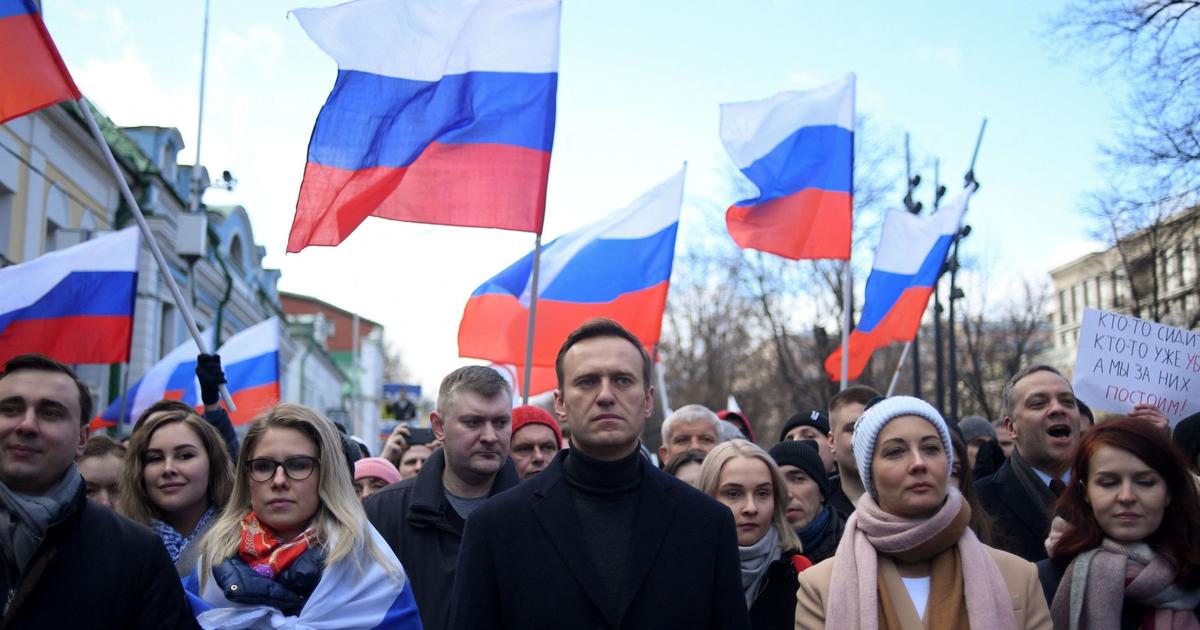Alexeï Navalny, number 1 opponent of Vladimir Putin, died in prison at the age of 49, this Friday February 16.
The soldier was serving a 19-year prison sentence for
“extremism”
in a remote penal colony in the Arctic, in very difficult conditions.
A look back at the repression that has hit the Russian president's great critics since he came to power in 2000.
Murdered
Former deputy prime minister, once considered to succeed President Boris Yeltsin against Vladimir Putin, Boris Nemtsov became a major detractor of the Russian president in the 2000s.
In 2014, he opposed the annexation of Crimea and the Kremlin's military support for separatists in eastern Ukraine.
Less than a year later, in February 2015, Nemtsov was assassinated four times in the back on a bridge a few dozen meters from the Kremlin.
He was 55 years old.
Boris Nemtsov in 2009. NATALIA KOLESNIKOVA / AFP
His supporters accused Chechen satrap Ramzan Kadyrov of having given the order, which he denies.
Five Chechens were nevertheless convicted for this murder, without the instigator having ever been officially identified.
Ten years earlier, in October 2006, Anna Politkovskaya, another known critic of Putin and Kadyrov, was shot dead in the lobby of her apartment building in Moscow.
This journalist at
Novaya Gazeta
, the country's main independent media outlet, had documented and denounced the crimes of the Russian army in Chechnya for years.
Anna Politkovskaya.
STAN HONDA / AFP
Imprisoned
Besides Alexandre Navalny, other critics narrowly avoided death and ended up in prison.
Vladimir Kara-Mourza, 41, says he survived two poisonings in the past.
He was sentenced in early 2023 to 25 years in prison, found guilty of
“high treason”
,
“false information”
about the army and illegal work for an
“undesirable”
organization .
Vladimir Kara-Mourza.
BRENDAN SMIALOWSKI / AFP
In December 2022, another known opponent, Ilia Yashin, 39, was sentenced to eight and a half years in prison for denouncing
“the murder of civilians”
in the Ukrainian town of Boucha, near Kiev, where the Russian army was accused of abuses, which Moscow denies.
Exiles
The vast majority of opposition figures remaining in Russia are imprisoned.
The others fled.
Mikhail Khodorkovsky, a former oil tycoon, spent ten years in prison after opposing Vladimir Putin in the early 2000s. Since his release in 2013, the ex-oligarch has taken refuge in London from where he finances opposition platforms.
Mikhail Khodorkovsky.
MICHELE TANTUSSI / AFP
Many supporters of Mikhail Khodorkovsky, but also of Alexei Navalny, have left Russia since 2021, a year which marked a sharp acceleration in repression.
This repression has intensified since the offensive in Ukraine, which also pushed thousands of opposition supporters, not just its cadres, to go into exile.
“Foreign agents”
Those who escaped death or prison risk another punishment: being designated
“foreign agents”
.
In recent years, this infamous label, which evokes the lexicon of Stalinist terror, has been attached to dozens of media outlets, NGOs, journalists, activists and artists.
This status forces them to submit to Kafkaesque constraints.
In particular, they must indicate their status as
“foreign agents”
in all publications, under penalty of sanctions.
Last winter, the NGO Memorial, co-winner of the 2022 Nobel Peace Prize and pillar of the defense of human rights, was dismantled by order of the Russian justice system for having violated the law on
“agents of stranger"
.

